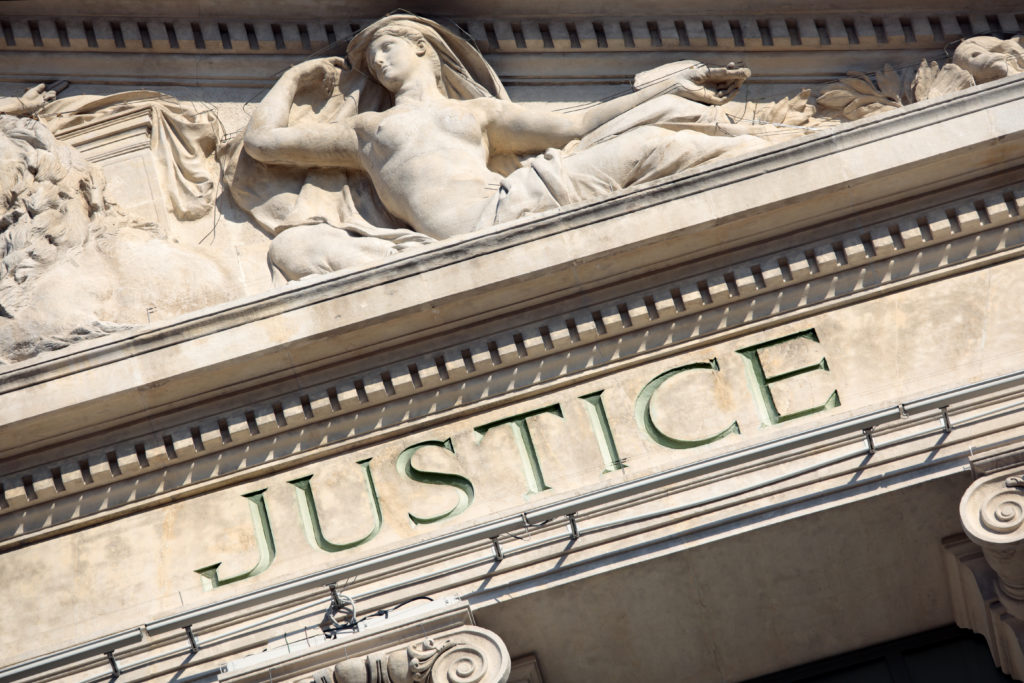Critical decisions are being reached at every level of our judiciary that could fundamentally reshape our country. Many funders and advocates have anxiously awaited the US Supreme Court’s rulings on a number of important cases: the constitutionality of the Muslim Ban, the right to refuse service based on religious beliefs, and the legality of extreme partisan gerrymandering, to name just a few. At the same time, groups in many states have awaited critical decisions from both federal and state supreme courts, for example, cases connected to Kansas’ proof-of-citizenship voter law, and Pennsylvania’s map of congressional districts.
We expect justices on both state and federal benches to make fair and impartial decisions, to rule in accordance with the law; however, today’s political environment is placing independent judiciaries at risk nationwide. Wealthy, powerful special interests and political forces are trying to politicize and control the courts, chipping away at the very core of American democracy, at a moment when the courts are critically important.

Deep pockets and hidden agendas
At both state and federal court levels, special interest groups and political forces are working feverishly to control the courts. The Judicial Crisis Network (JCN), for example, is one of the chief architects behind attacks on judicial independence. This network, with ties to dark money, invested over $17 million to prevent Merrick Garland from having a Senate hearing and ensure that Neil Gorsuch was placed on the bench. JCN has since invested in pressuring Senators to confirm unqualified, extremist federal judges, while also funneling funds to judicial elections in an attempt to hand-pick justices for state supreme courts.
If groups like JCN succeed in reshaping the courts, we the people will have lost a crucial defense against attempts to strip our constitutional rights. We must stand in resistance to these efforts to ensure that the peoples’ voices can be heard and their rights protected.
Successfully responding to attacks and advancing reform
While the intent of these special interest groups is chilling, the work—and success—of judicial independence advocates is inspiring.
Piper funds ten state-based judicial independence groups spanning from Alaska to Florida and provides field-building support to groups in thirteen additional states, to build a movement to protect the courts. With Piper’s support, North Carolina Voters for Clean Elections—working in one of the states that has been ground zero for attacks seeking to politicize the courts—has mobilized people from across the state in rallies and town hall meetings to demand that the courts remain fair and impartial. Similarly, Common Cause Wisconsin has created digital content to amplify the voices of over 50 retired justices demanding better recusal rules for judges tainted by special interest money. In some states—such as Kansas—our grantees have even averted constitutional crises.
Averting constitutional crises and ensuring systems of checks and balances
Recognizing the likelihood that a constitutional crisis may arise at the federal level, Piper has leveraged our expertise on state courts and our close relationships with national groups to bridge the gap between advocates working on state and federal courts. In partnership with Open Society Foundations, we have held a set of national meetings focused on scenario planning and infrastructure building. We have also invested in messaging research to learn how advocates can best engage the broader public in protecting the courts.
These efforts to build a federal and state advocacy network have already laid important groundwork. When legislators in Pennsylvania announced their intention to disobey a court order connected to redistricting and later threatened to impeach the state supreme court justices in retaliation, this network leapt into action. National groups provided coordinated support for communications and grassroots mobilization, while state leaders guided strategy based on firsthand knowledge of the situation and players. Piper supported public education efforts through a rapid response grant to local groups, including dedicated funding for polling. This work generated significant press coverage and garnered bipartisan support among judges to safeguard the independence of the courts.
The defense of courts is an urgent priority for the country. Piper Fund’s grantees, and other groups we support strategically, work to engage the public to reaffirm the separation of powers, which is fundamental to American democracy. But it’s more than that: our rights must be protected by judges who are free to do their jobs, unencumbered by special interests or improper power-grabs from other branches of the government.